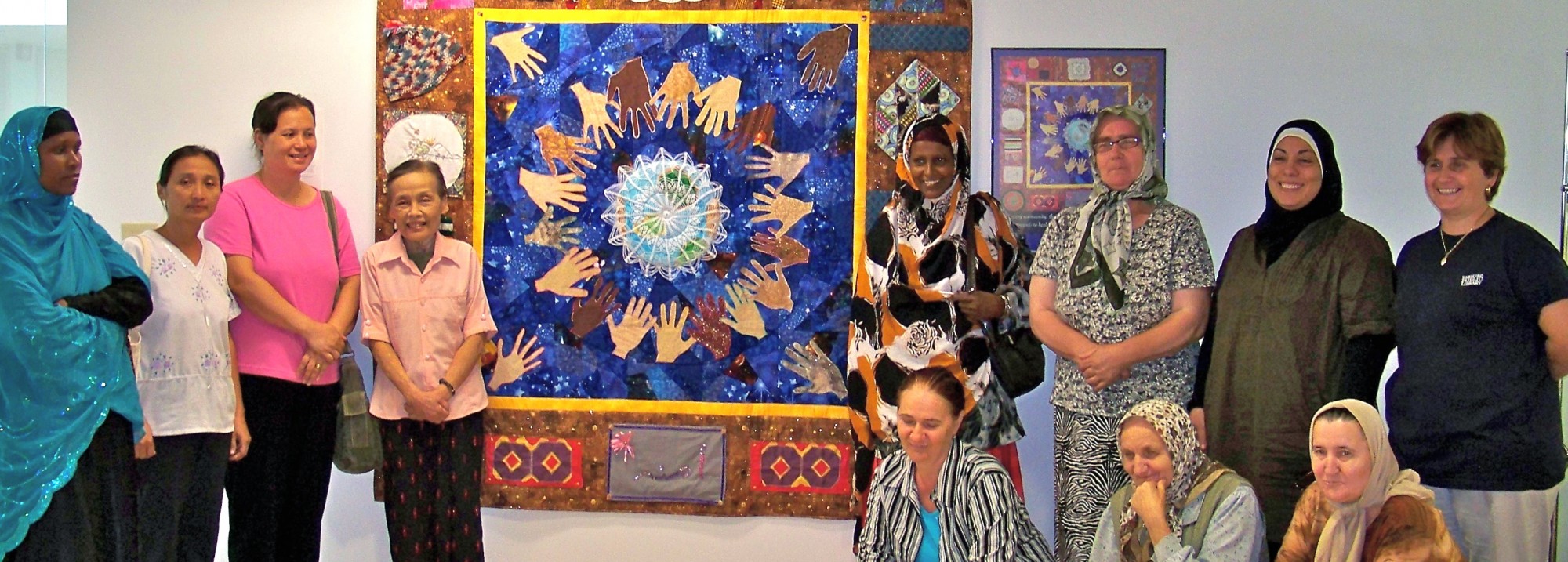Richie and I, along with Janet Bauer, decided to create a mentoring program that would efficiently offer tutoring programs for students interested in pursuing higher education. Initially, the we set out to create a program to assist students in college applications, applying for financial aid, and taking the appropriate SAT or TOEFL examination. However, as Richie and I began conducting interviews of Hartford refugee families, we determined that there were a plethora of other educational needs these families had. These ranged from ESL tutoring for parents to assistance and monitoring of students currently enrolled in college. Therefore, Richie and I decided to expand our program. We wanted to take a step back in the college process, as well as take a step forward. In other words, we wanted to assist younger kids with their homework, making sure they were on the right track for college, and assisting kids who are already enrolled in college, and making sure that they stay interested and enrolled, as well as utilizing the available academic services colleges offer.
We decided to call our services “Take 2 Mentoring.” We decided on this name for two reasons. The first being America provided opportunities for these refugee and immigrant families. It was a second chance at stable life. Also, we thought of in-school learning as “Take 1.” As is with most first takes of projects, nothing always goes 100% smoothly, and there are always corrections that can be made. Therefore, our services will be “Take 2.” We will help students and families get the knowledge, tools and resources that. We decided to create a website for our program to encourage the community to get involved, as well as bring some comfort to families. Our official mission began as:
“Take 2 Mentoring is a tutoring program that aims to increase academic success, and set refugee students, or students whose parents claim refugee status, on the path towards higher education. Savahna Reuben and Richie Freckleton, Trinity College students, founded Take 2 Mentoring to address a fundamental issue facing Refugee families: a lack of educational resources. Immigrant parents typically have little to no knowledge of the American school system. Furthermore, Refugee parents often do not know how the college process works, or the necessary steps that need be taken to pursue higher education. Take 2 Mentoring attempts to bridge this gap, and assist students who desire to pursue higher education.”
But Richie and I decided that it was important to get the perspective of actual refugee parents and to see what they needed help with, what they would feel comfortable with, and what they though about our program. In that way could we best create a mentoring program to fulfill the needs of the refugee community in Hartford.
In our first parent interview the father was clear that he wants his children to go to college, get a degree, and then think about marriage afterwards. Furthermore, he was proactive in answering our questions about homework assistance for the younger children, and seemed very eager and interested when we mentioned the possibility of working with the children in their home. However, the parents prefer that their children live at home throughout their college experience, in order to help with their younger siblings.
Eventually, the conversation shifted from how we could help the children, to how we could help the adults. The mothers said that they could really use ESL help, and that it would be ideal for someone to come into their home. Furthermore, the parents explained that their inability to speak English was the reason that they could not assist their children with any of their work, as well as their inability to obtain knowledge about the college system in America. Therefore, Richie and I decided to broaden Take 2 Mentoring. We wanted to offer services to the parents as well, so that we could make sure that we were offering the best possible services to these families.
In our second interview was with a mother from Burma named who had three sons, ages six to fourteen. She talked about the oldest son’s dreams of becoming a pilot, and the youngest son’s dreams of attending a Magnet school. The mother didn’t speak much English, but enough to answer most of our questions. She told us how she was enrolled in classes at Jubilee House, a refugee center in Hartford. She was excited that she was at level 2, and had finished level 1. She was eager to show us her completed level 1 notebooks, and happily flipped through them as if to show off her proud accomplishments. She asked us for help: to help her sons fulfill their dreams of education. And we promised her we would.
In another interview, and perhaps the most insightful, we spoke to a father named Karin father and his daughter who had been enrolled in Capitol Community College, but had recently dropped out because she wasn’t sure if nursing was what she wanted to do. We questioned her about talking to her college advisor about her academic future, but she said that she was too shy and didn’t want to go speak to her. Furthermore, she didn’t know what her college advisor could do to help. Her father seemed dismayed at this. He wanted his daughter to re-enroll in college and to graduate. He also mentioned an 18 year old son, and inquired about Trinity enrollment. He was very grateful for the program we were starting and were eager to get his children involved. Similarly, his eldest daughter seemed very interested in talking to us and getting a mentor, so that she might be able to apply to new colleges and pursue her passion of the arts. In contrast with the other families we interviewed, this father and daughter both agreed that she should live in a dormitory to focus on her education. The father noted that there are many distractions in the home, and that if she lived away from home she would be able to be more focused on her studies, as well as get more practice with English through submersion.
Through these interviews we realized that our mission needed to change. They were extremely insightful and now we are able to better tailor to the needs of the community. We look forward to putting the program in full motion in the fall, and perhaps taking off and allowing the program to eventually help families with green card applications. The possibilities are endless, and Take 2 Mentoring is excited to get to work.


